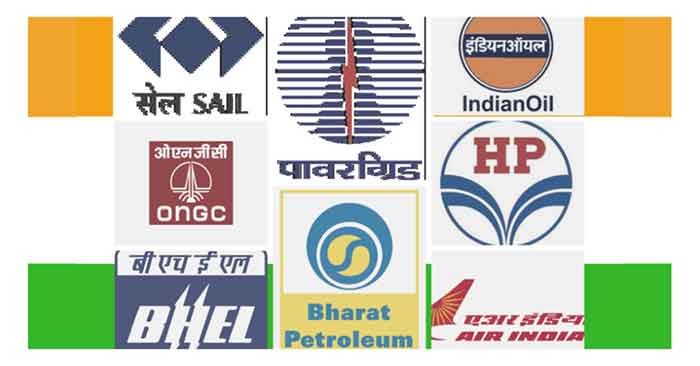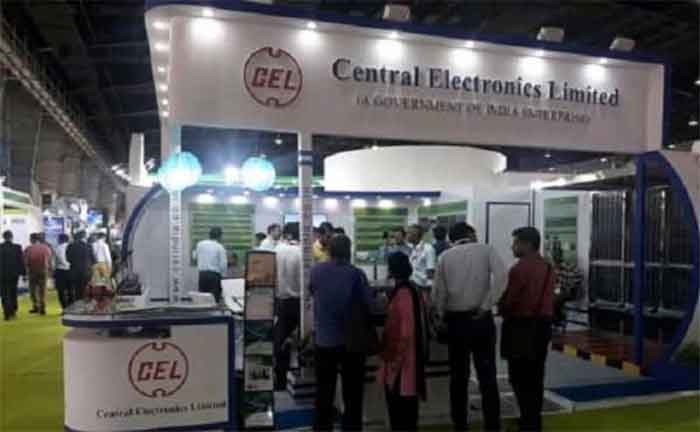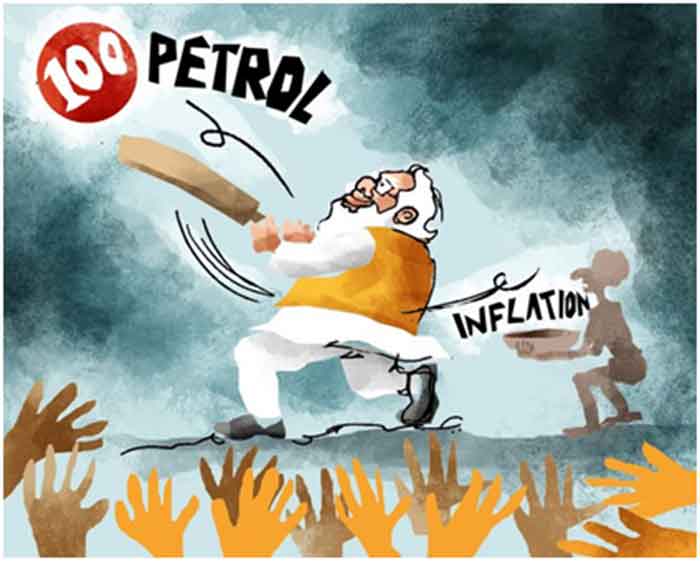
On July 22nd, 2021, Modi Government informed the Parliament of its decision to disinvest its stake in 23 Central Public Sector Units (CPSUs) [1]. On August 23rd, Finance Minister Nirmala Sitharaman announced a four-year asset monetization plan under the National Monetization Pipeline [2]. Both these decisions were already anticipated since their announcement in the Union Budget 2021, and neatly fits the economic policy pursued by the incumbent party [3]. While a section of the society has supported these policies, its implications for India and the welfare of its people might prove to be disastrous [4]. Contrary to the popular assumption these policies will not fix the prevailing problems of slow economic growth, but will aggravate the growing economic inequality, wreak havoc on the poor, severely impede the affirmative action policies, and will add to environment degradation [5] [6].
The common rationale behind the privatization policies is that the private corporations can run a business more efficiently and profitably than the bureaucratic government. Prime Minister Narendra Modi reiterated this neoliberal dogma while announcing the plan to privatize 100 PSUs, that the government has no business to be in business [7]. However, this is misleading and deceitful for two reasons. First, the mindless pursuit of efficiency is detrimental to the economy, and the society. It creates inequality, job losses, and market monopolies [8]. Second, efficiency or profit is not the sole or the most important objective of PSUs. PSUs are run for the welfare of workers, consumers, and the nation at large, and not to make profits for a handful of rich industrialists. Its workers are entitled to decent wages, paid leaves, definite working hours, and paid overtime, as well as other benefits. PSUs help in enacting affirmative action policies of the State for the backward classes, differently abled, and the women [9]. They offer their services to people often at a low rate, and even in unprofitable conditions. They are more obliging and adherent towards the environmental concerns. The sole incentive of profit destroys all such considerations. When a PSU is privatized, the first thing that the new owners do, is to reduce these ’inefficiencies’. Large number of workers are fired, and the rest are made to work longer, with lesser benefits [10]. Even in existing companies, such differences can be easily observed between the public and the private corporations. While BSNL spends over 70% of its revenue on its employees, for Reliance Jio that figure is less than 5%. So, the question is whether we need more Mukesh Ambanis, or more jobs for common people. The privatization of PSUs will add to the already alarming levels of economic inequality in India.
The other common concern is the quality of services offered by the government owned corporations. Of course, many people in India might have a tale of poor experience with BSNL or SBI. This situation is often blamed on the employees of these organizations. However, the actual reality is otherwise. For one, we have many successful PSUs in India, producing things from petroleum, and electricity, to satellites, atomic energy, and ICBMs. So, it can’t be that government workers are lazy, and don’t want to work without the incentives or threats of private sector. Second, the PSUs are deliberately crippled to create a public support for privatization. For past several years, BSNL employees had been protesting for the demand of launch of 4G services, which hasn’t been allocated to the organization yet. In 2020, when Indo-China skirmish started, the Government Of India unilaterally announced that BSNL will not buy Chinese equipment, while such restriction was not imposed on private telecom companies. Similarly, in the Rafale corruption case, Prime Minister Narendra Modi removed HAL from the almost finalized contract, and gave the contract to Reliance. American philosopher Noam Chomsky once said, regarding the policy of privatization [11],
> there is standard technique of privatization: defund, make sure things don’t work, people get angry, you hand it over to private capital.
Privatization of the PSUs often makes the service more expensive and exclusive in turn for providing a better experience for a few, and inaccessible for those who can’t pay for the luxury. Private hospitals might be lavish, and offer dedicated services, but privatization of healthcare demarcates the boundary between those who can afford to live and those who will be left to die. The greatest reason why government hospitals or banks or railways are so unattractive is that they serve so many people who can’t afford to go to private organization. Even today, while the average monthly balance requirement in HDFC Bank is ₹10,000, in SBI it is zero.
There is an oft-repeated belief that PSUs are loss making entities. This is a half-truth. It’s true that Air India is loss making and is in debt, but so was Indigo and Kingfisher Airlines. It’s true that BSNL is in debt, but so is Airtel, Vodafone-Idea, ADAG Reliance. Former TRAI Chairperson Pradeep Baijal once claimed that when PSUs perform poorly, the taxpayer pays. But that is true even in the case of failure of private companies, which has created NPAs worth over 8 trillion rupees. PSUs are playing with their hands tied behind their back, where the government is deliberately trying to cripple and ultimately sell them. Modi government’s disastrous policies has pushed even the once most profitable PSU, ONGC in debt [12]. And it’s not just the loss making Air India which is being sold, but even the profitable PSUs like BPCL, LIC, etc are being privatized. It’s not hard to imagine what will happen to the workers of these organizations once they are sold into the private hands. It must be noted that contrary to the popular belief, public sector accounts for only 3% of the total workforce in India, which is abysmally low for a welfare state. This is one-tenth of size of public sector in Norway and less than one-forth of the US [13].
Privatization is also going to adversely affect the economy [14]. It is undoubtedly understood that India’s economic crisis is largely due to the lack of demand in the market. So it doesn’t matter how efficiently can the private corporations produce goods and services, if there is no one to buy or use them. Finally, it is important to remember, as a cautionary warning, the severe humanitarian crisis unfolding in India due to the rising inequality [15]. During the COVID-19 pandemic, while the profits of corporations increased by 57% and the wealth of billionaires by 35% [16], an additional 230 million people fell below the poverty line [17]. Over 70% of Indians have downgraded their diet [18], while household debt has increased by 4.25 lakh crore [19] [20]. Even from an indifferent economic point of view, this crisis will make more people dependent on the government aids and schemes, which ironically, will hurt the taxpayers, at least those who are left to pay.
- Centre Officially Lines Up 23 CPSEs for Disinvestment | NewsClick https://www.newsclick.in/23-public-sector-enterprise-lined-disinvestment-central-govt
- National Asset Monetisation Plan: Centre announces asset monetisation plan to raise Rs 6 lakh crore by 2025; Key points | India Business News – Times of India https://timesofindia.indiatimes.com/business/india-business/centres-rs-6-lakh-crore-plan-to-monetise-state-assets-what-it-means/articleshow/85559280.cms
- DIPAM | Major Achievements https://dipam.gov.in/major-achievement
- Several Ministries, Departments Raised Concerns over Modi Govt’s Privatisation Push: Report | NewsClick https://www.newsclick.in/Several-Ministries-Departments-Raised-Concerns-Modi-Govt-Privatisation-Push-Report
- Privatisation spree will increase inequality: Prabhat Patnaik – Telegraph India https://www.telegraphindia.com/india/privatisation-spree-will-increase-inequality-prabhat-patnaik/cid/1812952
- ‘Stop Privatisation’: Why the Move to Privatise Public Sector Banks is Based on Flawed Assumptions | Economic and Political Weekly https://www.epw.in/engage/article/privatisation-public-sector-banks-flawed-assumptions
- Government has ‘no business to be in business’: PM Modi announces plans to privatise 100 PSUs – Business News https://www.indiatoday.in/business/story/government-has-no-business-to-be-in-business-pm-modi-announces-plans-to-privatise-100-psus-1772658-2021-02-24
- Our Obsession with Efficiency Is Destroying Our Resilience https://hbr.org/2019/01/the-high-price-of-efficiency
- Disinvestment of PSUs will lead to loss of quota jobs: Govt in Lok Sabha | Latest News India – Hindustan Times https://www.hindustantimes.com/india-news/disinvestment-of-psus-will-lead-to-loss-of-quota-jobs-govt-in-lok-sabha-101628513295760.html
- 18-hr shifts, ‘harassment’, late pay, pink slips — Tejas Express staff’s long list of woes https://theprint.in/india/late-pay-18-hr-shifts-pink-slips-tejas-express-staffs-dream-fades-2-months-after-launch/327212/
- Noam Chomsky on Privatization – YouTube https://www.youtube.com/watch?v=UikhLJNLFK4
- ONGC: Modi government drove India’s most profitable company under a mountain of debt https://scroll.in/article/898171/ongc-woes-how-modi-government-drove-indias-most-profitable-company-under-a-mountain-of-debt
- The withering trend of public employment in India – The Hindu BusinessLine https://www.thehindubusinessline.com/opinion/columns/the-withering-tren-of-public-employment-in-india/article28750003.ece
- Rising Corporate Profits Aren’t Good News for Indian Economy | Vivek Kaul https://vivekkaul.com/2020/12/08/rising-corporate-profits-arent-good-news-for-indian-economy/
- India: extreme inequality in numbers | Oxfam International https://www.oxfam.org/en/india-extreme-inequality-numbers
- Billionaire fortunes in India grew by Rs 2200 crore a day last year as poorest remained in debt https://www.oxfamindia.org/oxfam-davos-inequality-report-launch-public-good-private-wealth
- Additional 230 Million Indians Fell Below Poverty Line Due to the Pandemic: Study https://thewire.in/economy/additional-230-million-indians-fell-below-poverty-line-due-to-the-pandemic-study
- Six-fold increase in people suffering famine-like conditions since pandemic began | Oxfam International https://www.oxfam.org/en/press-releases/six-fold-increase-people-suffering-famine-conditions-pandemic-began
- Desperate Indians Used Savings, Took Loans to Survive COVID-19 Pandemic | NewsClick https://www.newsclick.in/Desperate-Indians-Used-Savings-Took-Loans-Survive-COVID-19-Pandemic
- गरीब पर मार, अमीर को उपहार का खेल : The Dainik Tribune https://www.dainiktribuneonline.com/news/comment/hit-the-poor-gift-to-the-rich-52690
Rishi Anand is a 28 year old activist, primarily associated with Swaraj Abhiyan. His interest is in workers and peasants struggle, social and economic justice movements, and environment protection. Ideologically, he is a socialist. He is a part of ongoing farm movement, and has been a part of several movements in the past, including local movements in Bihar.














































